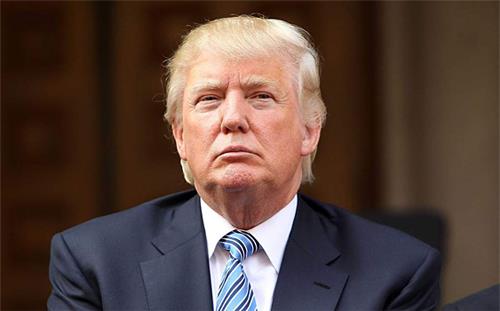The Surprise Hit of the Season Shouldn't Be One... A Surprise, That Is

As someone who writes about television, I have to admit I wouldn’t have guessed that the hot-buzz TV ticket for fall would be the Republican presidential primary debates.
That the first two would outdraw Sunday Night Football, NCIS, Empire and The Walking Dead.
Nope, didn’t see that one coming – probably because I didn’t realize how eager America apparently was to have a presidential primary campaign reframed as a long game of Celebrity Apprentice.
Once we got that clear, of course, it’s been no surprise Donald Trump sits where he does. He’s playing the game he invented.
Talk about home-field advantage.
That’s why it’s also no surprise that Trump just steamrolled CNBC into changing the rules for the next debate, Oct. 28, from CNBC’s rules to Trump’s rules.
But before we get to that, let’s reflect for a moment on the astonishing fact that a presidential primary debate, 15 months before the election, drew more viewers than a prime-time Sunday night football game.
Sure, presidential primary debates are fine if you’re interested in stuff like assessing the potential leaders of the country and how they might shape the future of our children and the world.
For political geeks, they’re Beluga caviar.
As television, though, they’re Brussels sprouts. You know they’re good for you and if Mom looks away for just a minute, you slip them to the dog.
If you were to list memorable moments in presidential campaign debates back to 1960, you’d have Richard Nixon’s 5 o’clock shadow, Lloyd Bentsen’s “you’re no John Kennedy” shot at Dan Quayle (left) and Ronald Reagan’s crack about youth and inexperience to Walter Mondale.
Those are pretty much it, and to that, you would have had to watch for 55 years.
No wonder expectations were modest for this year’s debates, compounded further by the fact this field has more obscure candidates than there are cat videos on YouTube. For most Americans, catching up with John Kasich isn’t exactly appointment television.
Then all of a sudden, bam, the first Republican debate drew 24 million viewers. The second one drew 23 million.
Even the first Democratic debate drew 15.3 million, probably for some of the same reason the Republican numbers shot so high. A rising Trump lifts all boats.
To put those figures in perspective, Sunday Night Football last week drew 19.6 million viewers. NCIS had 16 million, Empire had 12.2 million and The Walking Dead, drew 14.7 million.
All those numbers will rise with time-shifted viewing. Nonetheless, 24 million, or even 15.3 million, is a whole lot of people to gather in front of any television show that isn’t the Super Bowl.
Just ask CNBC.
Last week in primetime, CNBC averaged 457,000 viewers. If the Oct. 28 debate draws 24 million, that would represent slightly more than a 5,000% increase.
CNBC originally formatted the debate at three hours, no doubt figuring the horde of candidates would fill that much time even without opening and closing statements.
Then Trump said he wanted it limited to two hours, with opening and closing statements. He got Dr. Ben Carson to sign a letter saying that’s what he wanted, too, or else neither one would participate.
Who gets to negotiate terms of a news show on a news network?
No one.
Who gets to negotiate terms of an entertainment show?
The biggest stars of the show. When Mark Harmon’s deal with NCIS was up, CBS had to make him happy to keep him. It’s called leverage.
Trump has some experience with leverage, and no reluctance to use it. So it took about a microsecond for CNBC to think, “OMG, we might have to do this with Jeb Bush and Marco Rubio as our lead storyline,” and tell Trump sure, whatever you want.
In fact, Trump was making a smart point about the length of the debate. Like baseball games, debates should not run three hours.
Still, it kinda makes you wonder what CNBC would have said if Trump had demanded the other candidates wear clown suits with big floppy feet.
You also wonder what would have happened if Ben Carson had made the demand himself, without Trump. You get this image of CNBC texting back to say, “We’re sorry you can’t make it, Dr. Carson. We’ll send a postcard.”
The reality show aspect of the Republican debates has been evident for long enough that President Obama and Hillary Clinton, among others, have remarked on the resemblance.
What’s been most interesting about their comments, though, is how casually they’ve been delivered and received.
They’ve sounded less like an accusation, though Democrats Obama and Clinton would presumably love to convey that undertone, than simply a matter-of-fact description.
The setup of Celebrity Apprentice has been simple, successful and durable. Contestants are given tasks in which they must impress or charm enough friends and strangers to amass more cash than the other contestants.
Make the task “running for President,” change “cash” to “votes,” and the only question for TV networks is why we can’t do this election thing more often.